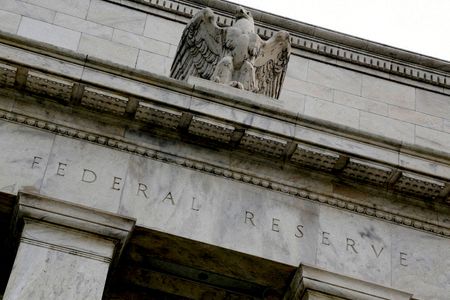By John Revill
ZURICH (Reuters) -Switzerland’s government was due to hold an extraordinary cabinet meeting on Monday to discuss its response to President Donald Trump’s 39% tariff on Swiss imports, which threatens to inflict heavy damage on its export-driven economy.
Switzerland was left stunned on Friday after Trump hit the country with one of the highest tariffs in his global trade reset, with industry associations warning that tens of thousands of jobs were at risk.
The duties are scheduled to go into effect on Thursday, giving the country, which counts the U.S. as its top export market for pharmaceuticals, watches, machinery and chocolates, a small window to strike a better deal.
The White House said on Friday it had made the move because of what it called Switzerland’s refusal to make “meaningful concessions” by dropping trade barriers, calling the two nations’ current trade relationship “one-sided”.
Swiss industry leaders and politicians, however, have struggled to understand why the country was singled out.
Trump has stated that he is seeking to rebalance global trade, claiming that current trade relations are stacked against the United States. And Switzerland had a 38.5 billion Swiss franc ($48 billion) trade surplus with the U.S. last year.
But Swiss President Karin Keller-Sutter told Reuters on Friday that Switzerland had given U.S. goods virtually duty-free access to its market, and Swiss companies had made very important direct investments in the United States.
“The president (Trump) is really focused on the trade deficit, because he thinks that this is a loss for the United States,” she told Reuters.
The EU, Japan and South Korea, which have negotiated 15% tariff rates with Washington, all have larger trade surpluses with the U.S. – around $235 billion for the EU, $70 billion for Japan, and a nearly $56 billion surplus for South Korea.
Any further concessions to Washington as part of efforts to negotiate a better tariff rate would have to be discussed by the full Swiss cabinet, Keller-Sutter said.
“I’m not ready to make an offer today. I think we have to discuss that in government,” she said in her comments on Friday.
LOOMING ECONOMIC DAMAGE
The government is open to revising its offer to the United States in response to the tariff rate, Business Minister Guy Parmelin said over the weekend.
He said options included Switzerland buying U.S. liquefied natural gas or further investments by Swiss companies in the United States.
The new tariff rate – up from an originally proposed 31% tariff that Swiss officials had already described as “incomprehensible” – would deal a major blow to Switzerland’s export-focused economy.
Swiss economic output would be reduced by 0.3% to 0.6% if the 39% tariff was imposed, said Hans Gersbach, an economist at ETH, a university in Zurich. That figure could rise above 0.7% if pharmaceuticals, which are currently not covered by the U.S. import duties, are included.
Prolonged disruptions could shrink Swiss GDP by more than 1%, Gersbach said.
The tariffs could also see the Swiss National Bank cut interest rates in September, according to Nomura.
An index of Swiss blue-chip stocks briefly hit its lowest since mid-April, as shares in banks, luxury retailers and pharma companies tumbled. The SMI index was last down 0.6% on the day, compared with a 0.6% rise in the regional STOXX 600 index.
In Zurich, shares in high-end watchmakers such as Richemont and Swatch fell in volatile trading. Richemont stock was last down 1.6%, having dropped as much as 3.5% earlier, while Swatch shares were down 2.1%, having fallen by as much as 5%.
On Monday, the Swiss franc was the worst-performing major currency against the dollar, which was last up 0.4% at 0.807 francs, not far off Friday’s one-month highs.
($1 = 0.8088 Swiss francs)
(Additional reporting by Amanda Cooper; Writing by Joe Bavier; Editing by Toby Chopra)










